In this post, we’re going to cover in detail what a cash-out refinance is. What exactly do you need for funding for real estate? How does that differ from a HELOC? I’ve gotten that question a lot from some of the students at our lead and some of my friends.
For recaps, what exactly is a cash-out refinance? We have a cash-out refinance, and we have a HELOC. Let’s start with the cash-out refinance because we cover that in our prior post.
A cash-out refinance is a commercial loan that you get from any lender, most likely a bank, in exchange for the equity of your property’s equity; that property can be your home where you reside. It can be any rental property that you have, and the requirements are usually higher. You need at least a 25% equity in it.
You can do it in any type of property, and once you get the money, you have all the money. It’s given to you in a lump sum. You got that, and now, a HELOC it’s somewhat similar, but not really. You can only do a HELOC in your residential home. You have to live there to qualify for HELOC because it stands for Home Equity Line of Credit. It has to be in a home and the requirements are a little bit more flexible than a cashflow refinance.
You need to have 20% equity in there. It’s not given to you in a lump sum. As the name says, it’s a line of credit. It works like a credit card. The bank was willing to give you 100,000 worth of HELOC. You have 0 to 100K to spend. You don’t always have to spend 100K, so you have this money available to you, but you can choose to spend, let’s say 20,000, and the interest rates on the HELOC will be charged only on the $10,000 that you took out.
Let’s say you pay down to five, but then in a few years, you take out another 10,000 putting you out $15,000 loan. Again, you’ll only pay interest on what you have used today and not the rest. There’s a book out there. I’m going to do another post to review how a couple pays down their house using a HELOC. They pay down their mortgage in less than five years. It was a very interesting book.
I haven’t personally tested it because I currently rent, prices in New York City are relatively high. I chose to take that money and increase my rental portfolio instead of paying a lot of money on non-performing assets, or Robert Kiyosaki will say. That’s in a nutshell. Oh, and rates. Based on the research that I did, you have to pay higher fees on HELOC instead of a cash-out refinance. I’m going to say. I don’t necessarily have to agree with that because it all depends on your relationship with the bank.
If the mortgage broker and you have a great rapport, you guys hit it up. Chances are, you can get a discount because I managed to talk them into giving me a discount and it has worked out fine. I wouldn’t necessarily just let that get in the way. That’s just a tip for you to know.

What exactly do you need to make a cash-out refinance happen? That’s something that you have to keep in mind. Some of you have heard from the elite training about having a power team. A power team is essential in this case because you’re going to have to rely a lot on them. In this particular scenario for a cash flow refinance, you’re going to need a mortgage broker.
Ads
You’re going to need a property manager. You’re going to need an appraiser. Of course, it’s not part of a power team, but it’s definitely something vital, great credit, and you’re also going to need credit cards or funds.
The broker you’re going to meet, you’re going to build a report, and you’re going to tell them what you’re trying to do. You’re going to say, “Hey, I have a 17 unit complex that I’m trying to purchase. What is your rate for a cash-out refinance because I’m planning to get that equity as part of a down payment for this engagement right here, you have a conversation, you’re going to build that rapport and you’re going to have to agree to fill out some forms.
Depending on the rate you negotiate, you can choose to lock it or simply go to another bank. Keep in mind that if one bank turns you down or if one bank gives you a high rate, that’s not necessarily set in stone. You can go to another bank and build that relationship with another broker and see how much they’re willing to offer you.
Always do your research, always see what’s out there so you can compare, if you get refused for a loan, don’t take it personally. Chances are it’s not a tally on you. Some banks have quotas that they need to make. Sometimes they exceed that quota by the time you get there. If you return, let’s say, at the beginning of the following month, chances are you might be able to qualify. Who knows?
All I’m trying to say is each bank has different requirements. Some banks are more flexible in terms of credit score. Maybe they can go over one loan or two while others have more strict guidelines. Again, nothing against you. Then you’re going to get a property manager because chances are, you are going to be working, or you’re going to be spending time with your loved ones, or you’re just going to be somewhere making more money elsewhere.
You’re going to need a property manager or somebody that you can trust. That’s going to let the appraiser go into the property and determine the value of your property. Now, these three are somewhat tied together. The appraisal for a cash-out refinance is going to be at your costs. If you’re like me, who is highly liquid, because I invested all of my money, I leveraged credit cards a lot.

The story of my 17 properties is that some appraisers cost I think 810, and then some, because they were single families, cost somewhere around in the 700. When you multiply those by 17, which is the number of units I was trying to make, that number was relatively high. I wasn’t willing to give up the cash because I needed that for the down payment of the deals I was about to close. What I did, I just simply used the credit cards. I swapped the credit cards, go ahead. You have the appraiser’s taken care of, and that’s it.
Depending on the state, you don’t need an attorney. I’m going to put it on a question mark because that’s maybe depending on the state you are, you will need an attorney because even though it was a cash-out refinance and it doesn’t sound like a mortgage. In fact, the mortgage because you’re using a property as collateral. I like cash-out refinance because they offer a little bit more flexibility for those who don’t own their own house, but they do have some investments elsewhere for rentals.
Ads
You want to leverage some of that property. It’s an excellent tool for you to expand your portfolio even further. You don’t only use that to purchase another property, but you can use this money to flip a house, develop the land, or maybe buy some piece of equipment for a place that has been sitting for a long time. You feel the need to upgrade it because you want to take the cash or refinance on that other house. By forcing the value up by doing a nice kitchen and a nice bathroom, it’s going to help you take full advantage of this vehicle.
As a recap, you have all of this information right here, and now you’re going to have to go out there and talk to a couple of mortgage brokers and build some relationships. Chances are, there’s a few of them around the block from where you live. If you don’t know where to start, then again, use the website that I shared with you before scottsmansguide.com. I’m going to include the link down below. You’re going to go ahead and use them.
RESOURCES & LINKS MENTIONED IN THIS EPISODE:
– https://www.scotsmanguide.com
– Recommended Credit Cards 👉 https://go.www.novariseinvest.com/credit-…
– Chase Sapphire (Sign up bonus): http://bit.ly/Sapphire-Chase
HAVE A SPANISH SPEAKING SPOUSE OR BUSINESS PARTNER?:
Here is Novarise Latino: http://bit.ly/videosNovaRiseLatino
FREE WEBINAR:
Learn how to invest in real estate without savings and still have enough to expand your portfolio, click here for a FREE training https://www.novariseinvest.com/webinar
For questions & consultations, please visit us at https://www.novariseinvest.com/



